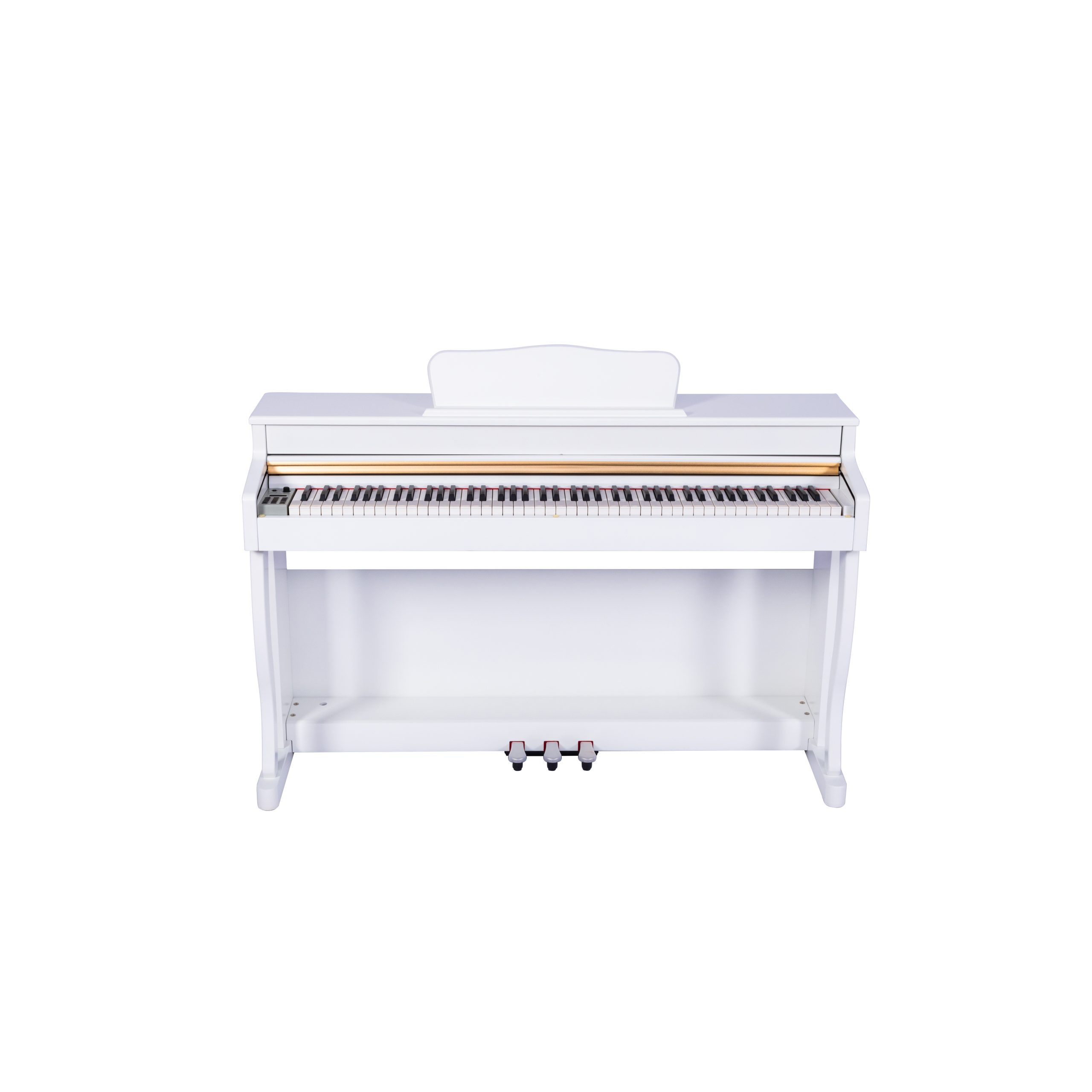Digital pianos have revolutionized the world of music by offering a versatile and cost-effective alternative to traditional acoustic pianos. Whether you’re an aspiring musician, a hobbyist, or someone seeking a quality instrument for practice, understanding the key features, benefits, and considerations of digital pianos is crucial. In this comprehensive guide, we will delve into everything you need to know about digital pianos, from their unique features to choosing the right model that suits your needs.
Understanding Digital Pianos
What Is a Digital Piano?
A digital piano is an electronic musical instrument that simulates the sound and feel of an acoustic piano. Unlike synthesizers, digital pianos are designed to replicate the natural tone and response of traditional pianos as closely as possible. They achieve this through advanced sampling technology, where high-quality recordings of acoustic pianos are used to produce sound.
The Evolution of Digital Pianos
The evolution of digital pianos over the years has been remarkable. Initially seen as a convenient substitute for acoustic pianos, modern digital pianos now offer features that surpass their traditional counterparts in many ways. With advancements in technology, digital pianos have become more realistic in sound and feel, often including features like weighted keys, multiple sound libraries, and even interactive learning tools.
Key Features of Digital Pianos
Weighted Keys and Touch Sensitivity
One of the most critical aspects of a digital piano is the feel of the keys. High-quality digital pianos feature weighted keys that mimic the resistance of acoustic piano keys. This provides a more authentic playing experience, making the transition between digital and acoustic pianos seamless for pianists.
Touch sensitivity is another essential feature that affects the expressiveness of your playing. A digital piano with touch sensitivity allows for dynamic variations in volume based on how hard or soft the keys are pressed, closely resembling the response of an acoustic piano.
Sound Quality and Sampling Technology
The sound quality of a digital piano is determined by its sampling technology. Top-tier digital pianos use multi-layered sampling to capture the nuances of acoustic piano sounds. This means that each note is sampled at different velocities, providing a rich and dynamic sound that changes based on how the keys are played.
Additionally, digital pianos often include a variety of sounds beyond just piano tones, such as strings, organs, and synthesizers. This versatility allows musicians to explore different genres and styles with a single instrument.
Portability and Space Efficiency
One of the significant advantages of digital pianos is their portability. Unlike acoustic pianos, which are bulky and heavy, digital pianos are lightweight and can be easily moved or stored. This makes them ideal for musicians who need a portable instrument for performances or those with limited space at home.
Connectivity Options
Modern digital pianos come equipped with various connectivity options, including USB, MIDI, and Bluetooth. These features allow you to connect your piano to computers, tablets, and other devices, expanding the possibilities for recording, composing, and interactive learning. Some digital pianos also offer integration with music apps, providing additional tools for practice and creativity.
Choosing the Right Digital Piano
Budget Considerations
When choosing a digital piano, budget is often the first consideration. Digital pianos come in a wide range of prices, from affordable entry-level models to high-end instruments with advanced features. It’s essential to find a balance between your budget and the features you need. Entry-level models are perfect for beginners, offering basic functionalities, while advanced players may prefer higher-end models with more sophisticated features.
Purpose and Use
Consider how you plan to use your digital piano. Are you a beginner looking to learn the basics, or an experienced player seeking a portable instrument for gigs? Your intended use will significantly influence the type of digital piano you should purchase. For beginners, a model with learning features and built-in lessons can be highly beneficial. In contrast, professional musicians may prioritize sound quality, touch response, and advanced connectivity.
Brand Reputation and Reviews
Brand reputation is another critical factor in choosing a digital piano. Established brands like Yamaha, Roland, and Casio are known for their reliability and quality. Reading customer reviews and expert opinions can provide valuable insights into the performance and durability of specific models.
Advantages of Digital Pianos
Affordability
One of the most significant advantages of digital pianos is their affordability compared to acoustic pianos. While a high-quality acoustic piano can cost thousands of dollars, digital pianos are available at various price points, making them accessible to a broader audience.
Maintenance-Free
Unlike acoustic pianos, which require regular tuning and maintenance, digital pianos are virtually maintenance-free. This makes them an attractive option for those who want a hassle-free instrument that remains in perfect tune regardless of environmental conditions.
Versatility and Features
Digital pianos offer a level of versatility that acoustic pianos cannot match. With features like built-in metronomes, recording capabilities, and different instrument voices, digital pianos provide musicians with a wide range of creative possibilities. Additionally, the ability to practice with headphones makes digital pianos ideal for those who need to practice quietly.
Our company is a comprehensive enterprise ingratiating research and development, design, production, sales and service. We produce several kinds of electronic piano for all over the world.
If you want to know more details, add my whatsapp: +86 17706062278. Gmail: anngood88day@gmail.com

